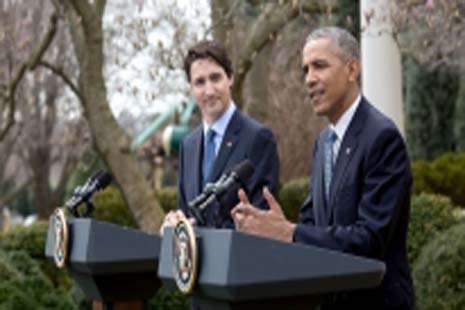On March 9, WORC welcomed the announcement by President Barack Obama and Premier Justin Trudeau that United States and Canada are committed to taking new actions to cut methane pollution from existing oil and gas operations. The oil and gas industry is the largest industrial source of methane pollution in the world. A component of natural gas, methane is up to 80 times more potent than carbon dioxide in warming the planet.
The announcement follows efforts by the Obama Administration to address methane pollution. In 2012, U.S. Environmental Protection Agency (EPA) set emission standards to lower pollution, including methane, from fractured and re-fractured natural gas wells. Last summer, the agency proposed standards to reduce methane emissions from new and modified sources in the oil and gas sector.
With the announcement, EPA will begin to work on standards for methane emissions from existing oil and gas sources. This is a big win because WORC groups and our allies have been pushing the EPA to address existing sources of methane pollution since this summer.
BLM to also cut methane
In addition, the U.S. Bureau of Land Management (BLM) is developing standards to rein in flaring and venting on federal lands. The BLM proposal focuses on reducing the amount of methane wasted through flaring, venting, and leaking by oil and gas wells and infrastructure located on federal and tribal lands. You can support the BLM standards by visiting WORC’s action page. WORC member groups attended hearings in Dickinson, N.D., and Lakewood, Colo., to support the BLM’s efforts in early March.
WORC Statement
Lisa DeVille, a member of the WORC board of directors from Mandaree, N.D., and enrolled member of the Three Affiliated Tribes, issued the following statement on behalf of WORC in reaction to the historic announcement:
“The Western Organization of Resource Councils applauds President Obama and Prime Minister Trudeau on their joint leadership in agreeing to cut harmful methane pollution from existing and new oil and gas development and combat climate change. Their agreement will go a long way toward ensuring people in oil and gas impacted communities in the United States and Canada will get some much needed relief from harmful methane emissions, while also protecting the United States and Canada from the harmful effects of climate change.”

